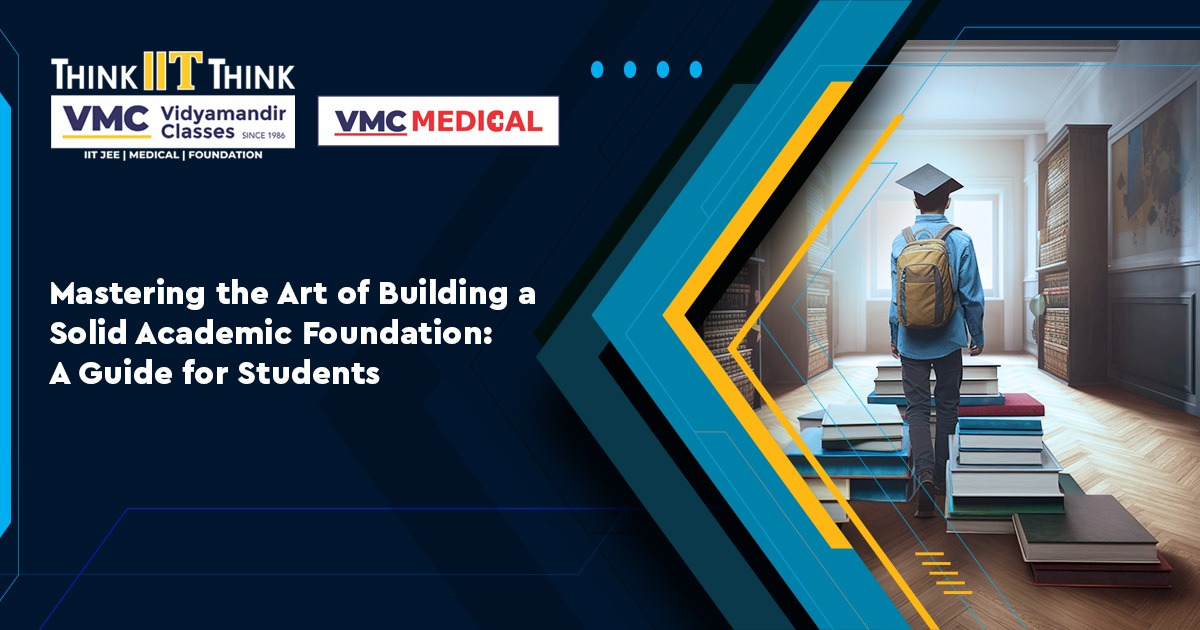Mastering the Art of Building a Solid Academic Foundation: A Guide for Students
 Posted On
Posted On
405 total views, 2 views today
In the journey of education, as we ascend to higher standards, it becomes imperative to reflect on the robustness of our foundational knowledge. Much like a building’s stability relies on a strong foundation, our academic success hinges on a well-established groundwork. This blog delves into the significance of retaining and reinforcing past foundations, emphasizing the pivotal role it plays in shaping a successful educational and professional trajectory.
The Crucial Role of Prior Knowledge:
Establishing a strong early learning foundation acts as a ladder paving the way for future success and adaptability. It serves as the bedrock upon which students can thrive in more advanced studies. Recognizing the importance of prior knowledge from previous courses is essential as it provides the necessary framework for comprehension and application in current and future academic endeavors.
The Art of Studying Back:
Often, students face challenges in building a solid foundation due to a lack of awareness and guidance. A powerful strategy to fortify existing knowledge is to revisit the content from previous years’ syllabi. This proactive approach ensures that students are well-equipped with the fundamental concepts required for a successful academic and professional journey.
Tips for Building a Strong Foundation:
- Revision as the Key to Strengthening Foundations:
Building a strong foundation is a step-by-step process, beginning with a fundamental understanding of basic concepts. However, the critical aspect of revisiting and reinforcing these basics is often overlooked. Allocating dedicated time to revising previous years’ syllabi is crucial for comprehensive learning.
- Systematic Approach to Revision:
Tailor your revision approach based on your current academic level. For instance, if you’re in 10th grade, revisiting the 9th-grade syllabus is essential. Similarly, for those in 11th grade, a thorough review of the content from 9th and 10th grades is recommended. This systematic revision process ensures a continuous strengthening of the foundation.
- Consistent Time Investment:
Dedicate 3 to 4 hours each week to revisiting past syllabi. Consistency is key in this productive activity, ensuring that you don’t merely focus on the current year’s curriculum but actively engage with foundational concepts from previous years. This practice enriches your understanding and enhances your academic capabilities.
- Gaining Perspective with Age:
As students grow older, their minds and bodies develop, providing a new perspective when revisiting older syllabi. With maturity, you approach previous material with enhanced understanding, contributing to a more profound grasp of the subject matter. This mature perspective also aids in the comprehension of current syllabi.
- Long-Term Impact of Revision:
The benefits of revisiting and reinforcing foundational knowledge extend beyond immediate academic gains. A solid foundation, coupled with consistent revision, leaves a long-lasting impression on your memory. This, in turn, facilitates a more profound understanding of topics and contributes to long-term academic success.
- Preventing Academic Strength from Fading:
A holistic education built on a reliable foundation empowers students to make the most of their learning experiences. The continuous exploration of previous class syllabi, coupled with timely revision, ensures that students not only thrive but also discover their full potential at every stage of their academic and professional journey.
Final Thoughts:
In conclusion, the journey to academic excellence involves more than just progressing through the current curriculum. It necessitates a commitment to revisiting and reinforcing foundational knowledge, a practice that not only solidifies the past but also propels students towards a future of continual success. By adopting a proactive approach to learning, students can ensure that their educational journey is not just a series of steps but a continuous ascent towards knowledge mastery and lifelong success.




